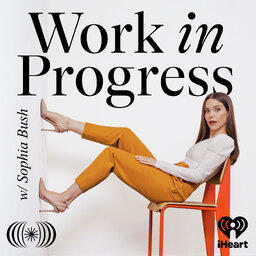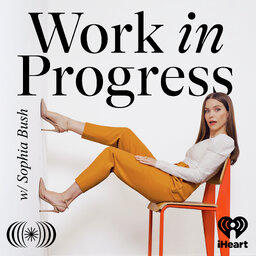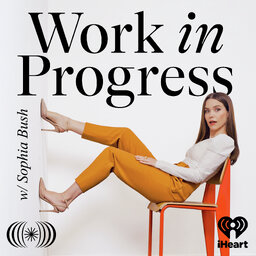Liz Feldman is a writer, comedian, and the creator of “Dead To Me.” She joins Sophia on Work In Progress to talk about what inspired the series, the first joke she ever told, her time working on “All That,” the lessons she learned from Ellen DeGeneres, writing “likable characters” and how to be funny and kind at the same time. Executive Producers: Sophia Bush & Sim Sarna Supervising Producer: Allison Bresnick Associate Producer: Caitlin Lee Editor: Josh Windisch Music written by Jack Garratt and produced by Mark Foster Artwork by Kimi Selfridge. This show is brought to you by Brilliant Anatomy.
In 1 playlist(s)
Work in Progress with Sophia Bush
Work in Progress with Sophia Bush features frank, funny, personal, professional, and sometimes even …Social links
Follow podcast
Recent clips

Work in Progress: Mika Brzezinski
1:01:11

Work In Progress: Sophia answers fan questions
23:52

Work in Progress: Rory Uphold
1:07:05
 Work in Progress with Sophia Bush
Work in Progress with Sophia Bush